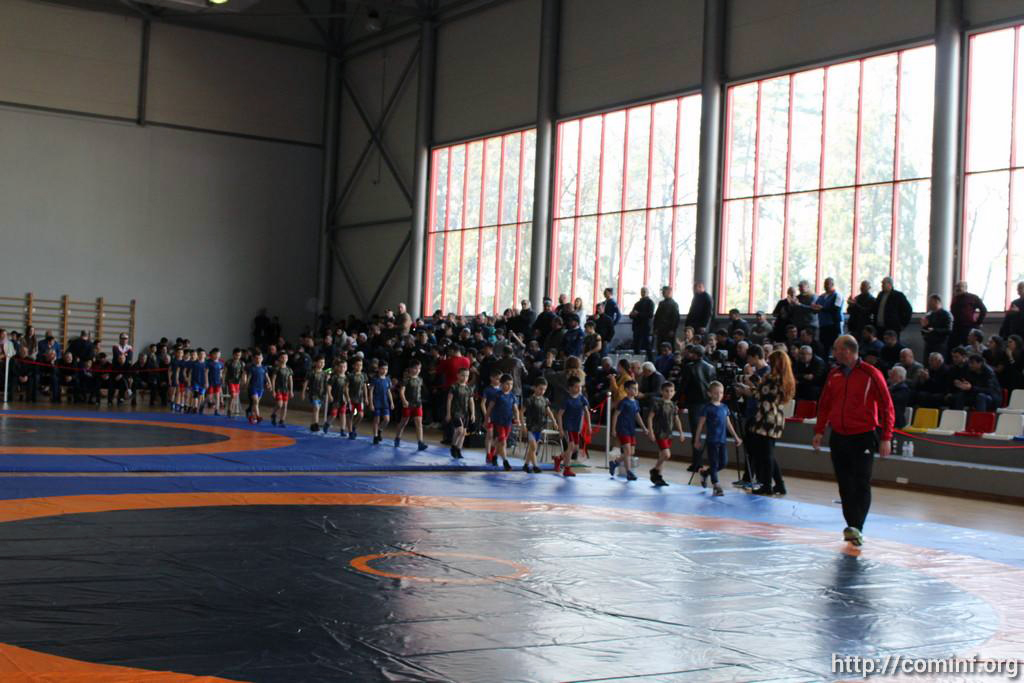
The authorities in South Ossetia have announced a ‘quarantine’ to fight the spread of the coronavirus. The quarantine was announced on 27 March and is due to last until 12 April.
No cases of the coronavirus have so far been confirmed in South Ossetia.
[Follow our live updates on the coronavirus in the Caucasus.]
The measures being enacted include closing all places of business and sports establishments, except for grocery stores and pharmacies. Food delivery services will also still be allowed to continue.
The South Ossetian government also banned wedding parties and other festive events until 1 May and recommended people organise funerals with limited numbers.
The authorities obliged employers to grant paid sick leave to at-risk groups, including pregnant women and those with pre-existing medical conditions, who they said had the right to self-isolate at home.
The government also promised paid leave to one parent in every household with a child under 10.
Under the quarantine, South Ossetia also banned all foreign citizens from entering the region, including Russian citizens. Exceptions will be made by the local headquarters to fight the spread of the coronavirus.
The authorities previously banned foreign citizens from entering South Ossetia on 17 March, with the exception of Russian citizens.
Public events were banned in South Ossetia as early as on 16 March while on 18 March, the local authorities also closed all educational institutions.
Despite the ban, South Ossetian President Anatoly Bibilov personally attended the public opening of a freestyle wrestling championship in the capital Tskhinvali (Tskhinval) on 22 March.

On 27 February, a day after the first case of coronavirus was confirmed in Georgia, South Ossetia’s Security Council announced they were closing the crossing points with Georgia-controlled territory indefinitely.
No confirmed cases; 60 being monitored
Marina Kochiyeva, Chief Medical Officer of South Ossetia, stated on 27 March that they were closely monitoring 60 people who may have the virus. Eleven of these were in hospital while the rest were in self-isolation, she said.
Among those in self-isolation, according to Kochiyeva, were students who had returned to South Ossetia.
After most Russian higher educational institutions switched to online teaching in mid-March, students from South Ossetia studying in Russia started returning to the region.
Announcing the quarantine on Friday, the South Ossetian government obliged anyone returning to notify them immediately upon arrival of their contact details, address, and where they had travelled from.
According to the South Ossetian health authorities, on 26 March they received ‘5 test systems’ from Russia which they said was enough to carry out testing for COVID-19 on 200 people. They said they were expecting an additional 500 units.
‘Half-quarantine’
In the quarantine announced on 27 March, the government stopped short of ordering state institutions to move to distance work.
President Bibilov claimed that working from a distance would be inappropriate as people ‘had to see that state agencies are working and solving their problems in the usual manner, despite the quarantine’.
David Sanakoyev, leader of the opposition Nykhas Party, lambasted the government’s ‘irresponsible’ decision on Facebook later that day, calling it a ‘half-quarantine’.
‘What’s the point of putting schools and universities in quarantine if parents of schoolchildren and students will keep going to work? If, God forbid, people get sick, how ready is our healthcare system for a sharp rise in patient numbers? How many breathing ventilators do we have in the republic?’, Sanakoyev asked.
He also criticised in a similar manner the government’s decision to keep two bus routes in Tskhinvali open.
For ease of reading, we choose not to use qualifiers such as ‘de facto’, ‘unrecognised’, or ‘partially recognised’ when discussing institutions or political positions within Abkhazia, Nagorno-Karabakh, and South Ossetia. This does not imply a position on their status.









